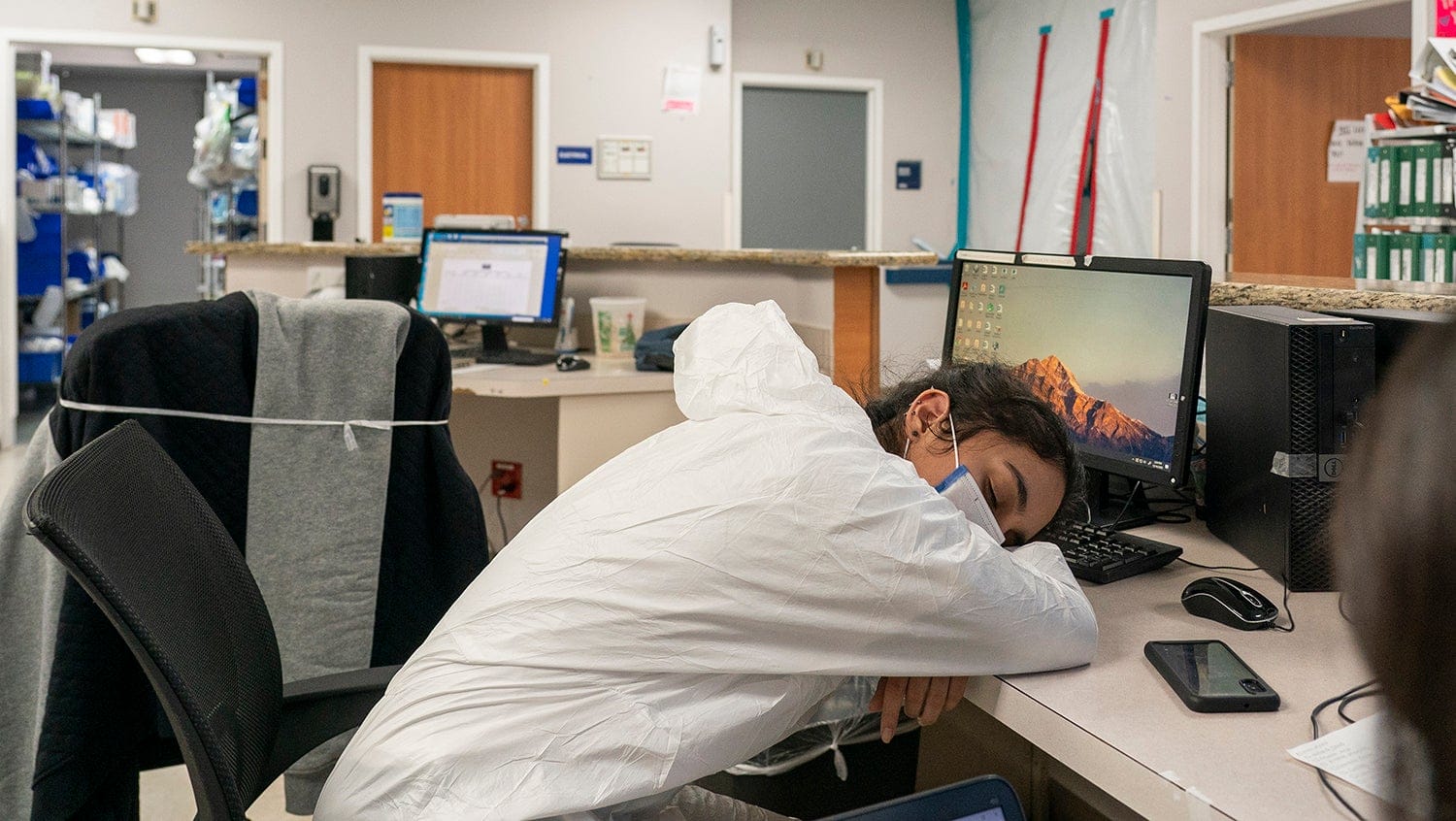Is Healthy Sleep for Medical Residents Possible?: AUDIO
August 25, 2022

Go Nakamura, Getty Images
Through residents' sleep diaries and expert interviews, this audio series unpacks the gravity of sleep health.
Sleep is an elusive necessity for many, but especially for resident physicians who frequently work erratic schedules, as they learn to develop and hone their clinical acumen. According to a 2020 study in JAMA Network Open, lack of sleep among medical residents leads to burnout, increases in self-reported clinically significant medical errors, and decreased feelings of professional fulfillment.
“Medical providers are a unique subset of the population who have to deal a lot with curtailed sleep time and working abnormally long shifts — shifts that are also high stress and require a lot of vigilance and cognitive function,” says Naina Limbekar, MD, MPH, a sleep neurologist at Boston Medical Center (BMC). “It can be tough.”
The below audio story, produced and hosted by Madeline Herec Poirier and sound engineering by Billy Wirasnik, delves into the history of the problem: Why is quality sleep so tricky for medical residents to achieve and what are the serious ramifications of this problem?
We look back at the history of medical residency programs, the pivotal Libby Zion case which helped spark some change in residency programs, and we speak to experts here at BMC — Limbekar and Sanford Auerbach, MD, the director of both BMC’s Sleep Disorder Center and sleep medicine fellowship training program — as well as Jeffrey Schneider, MD, who is the chair of the graduate medical education committee at BMC. They all share insights on the value of sleep in general, with a particular focus on why it’s important that medical residents in particular get a good night’s sleep. The audio series also features personal stories and sleep diaries from four anonymous residents.
“I think we’ve done a lot at Boston Medical Center to figure out what we can do to address the fatigue, the burn-out, and more importantly the vitality of our residents…,” says Schneider, “so that we can keep our learners in the best place they can learn their specialty while also taking great care of our patients.”
In the next and final part of this audio series, we continue our conversations with resident physicians and sleep experts to more deeply explore strategies for residents and others with erratic sleep schedules to get quality sleep, improve their sleep hygiene, and adjust their sleep schedule for shift work. Listen to episode two of this two-part series here.


